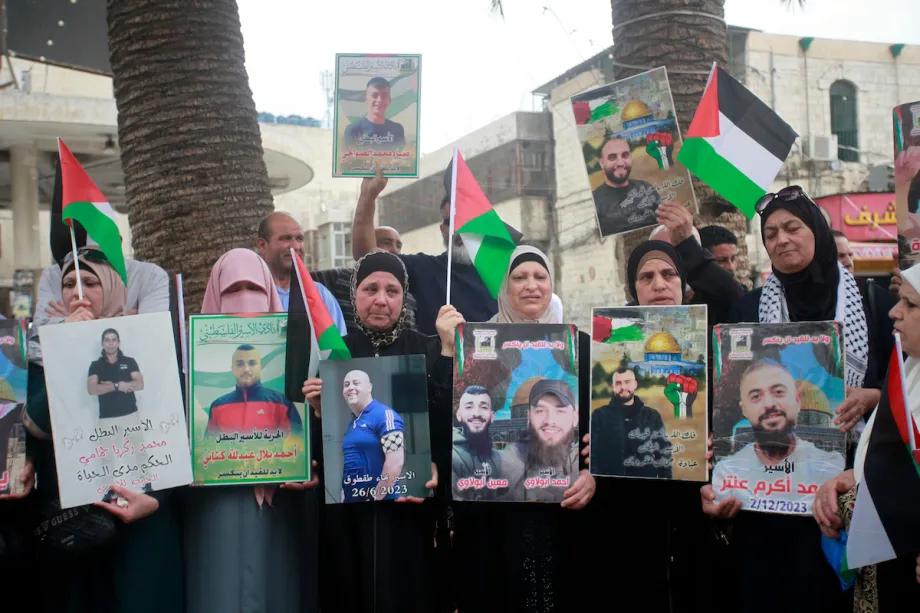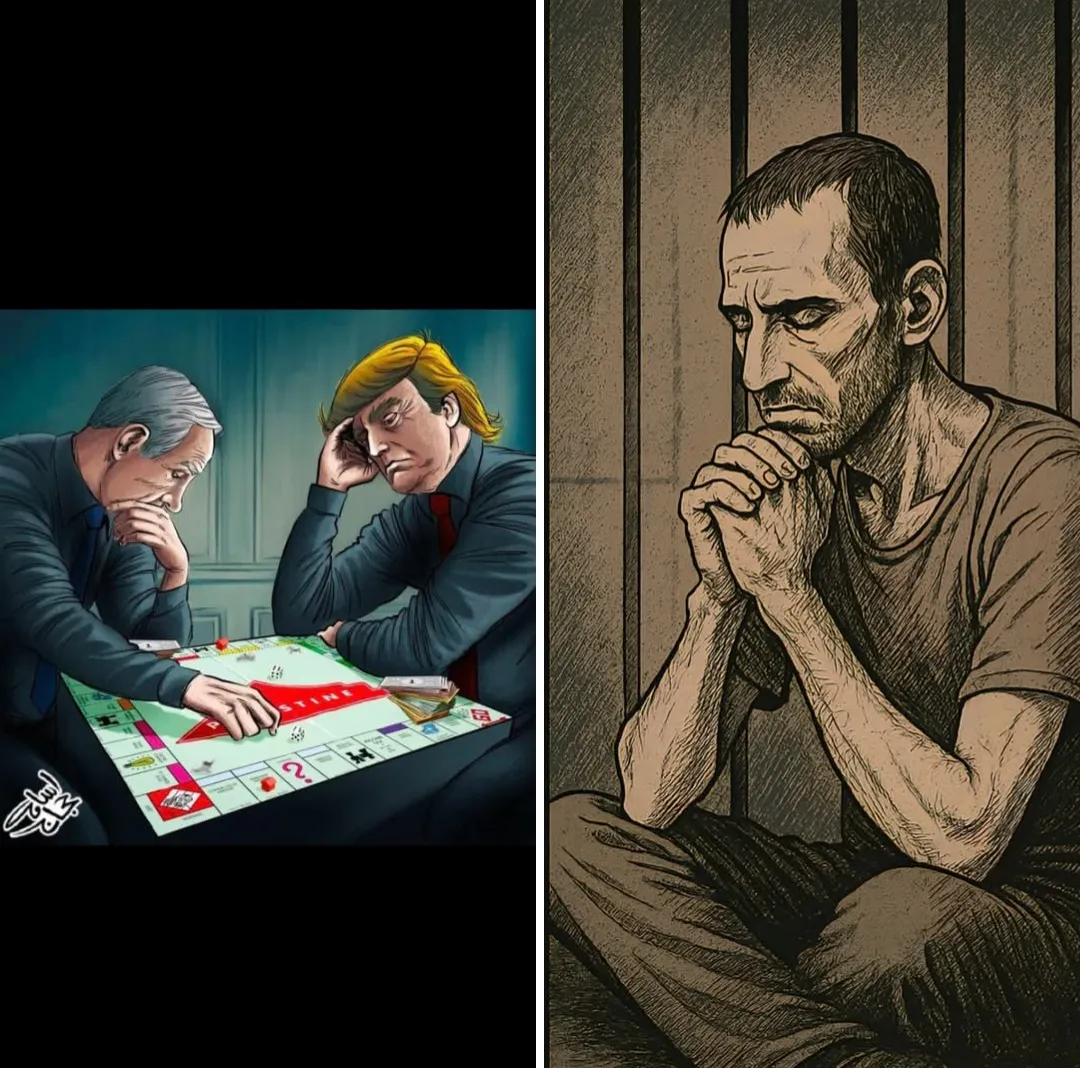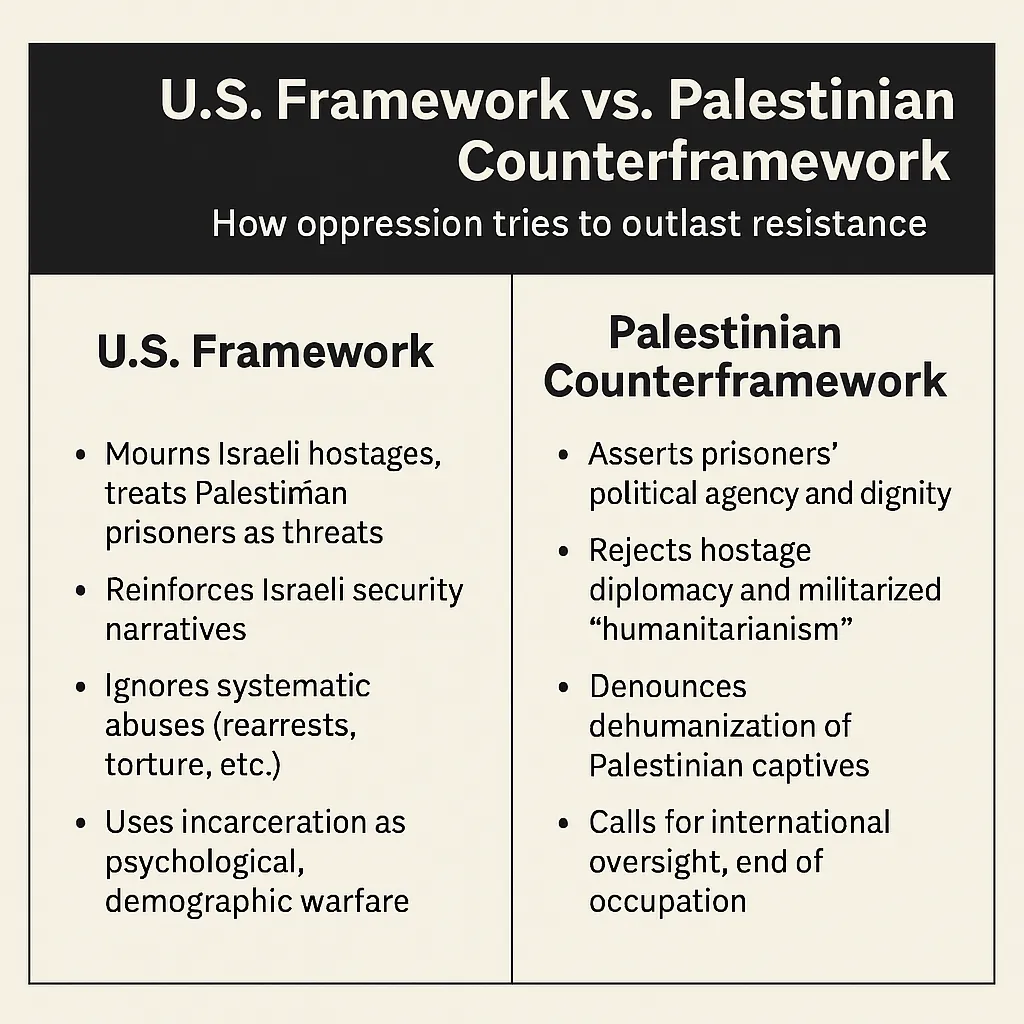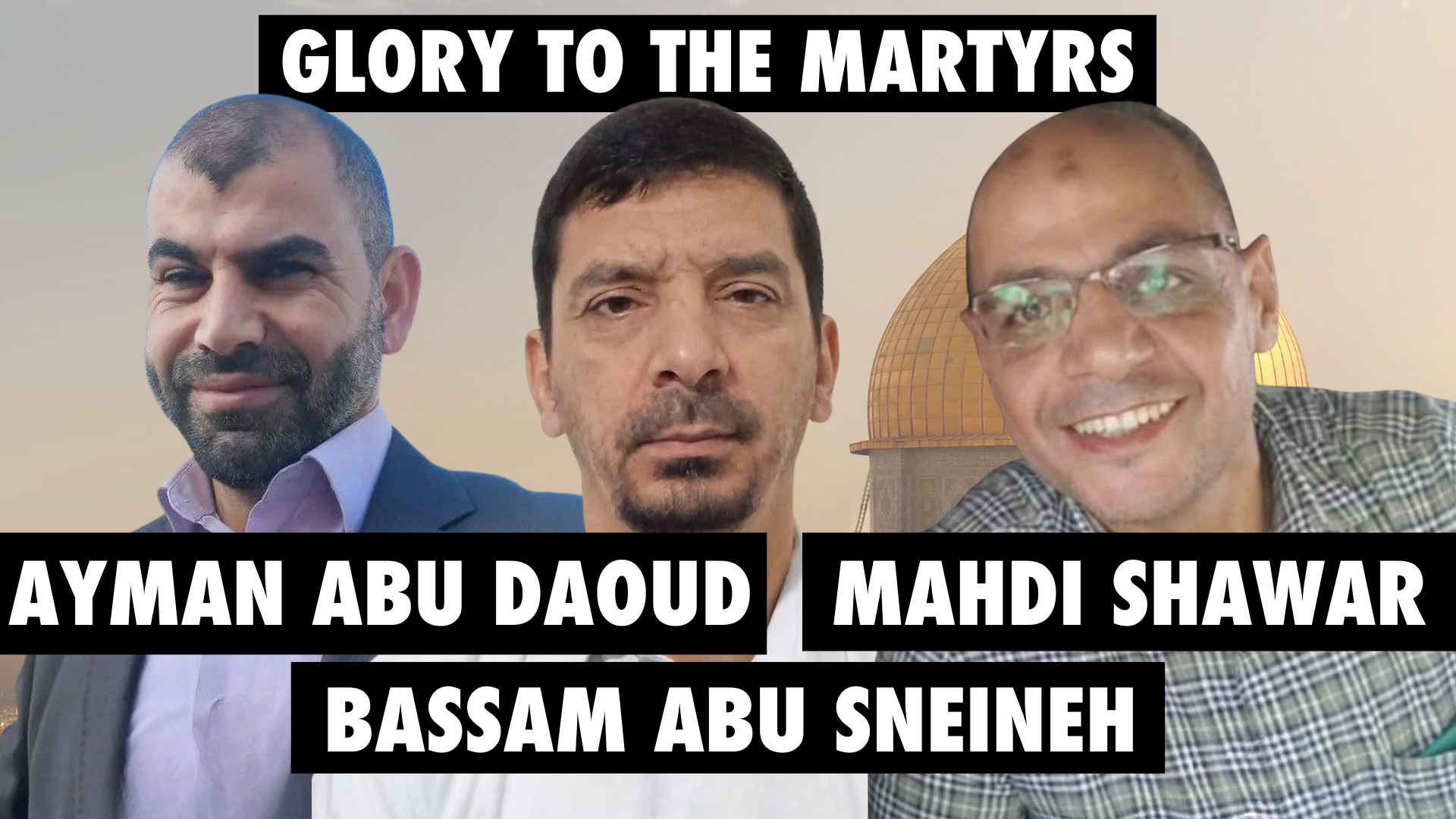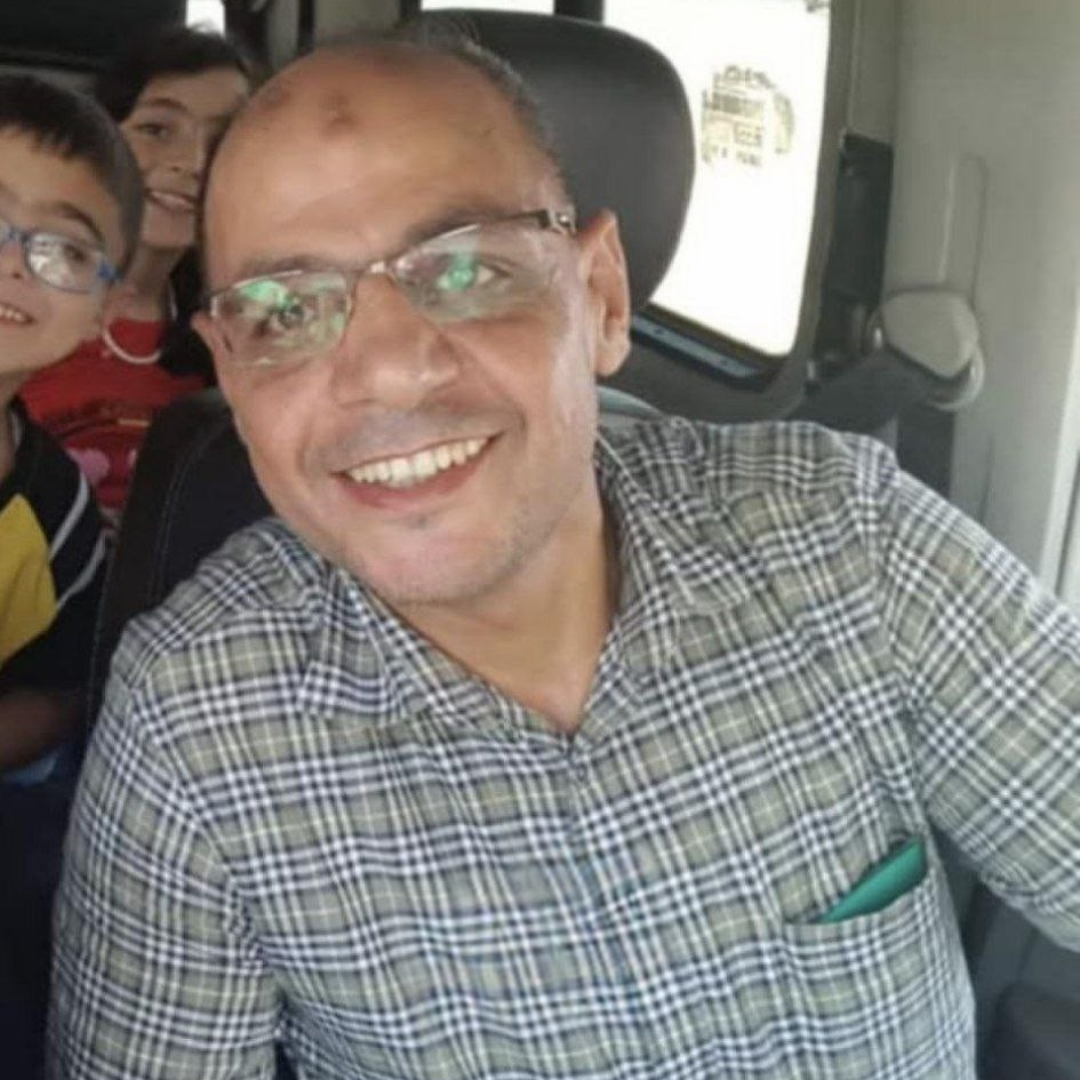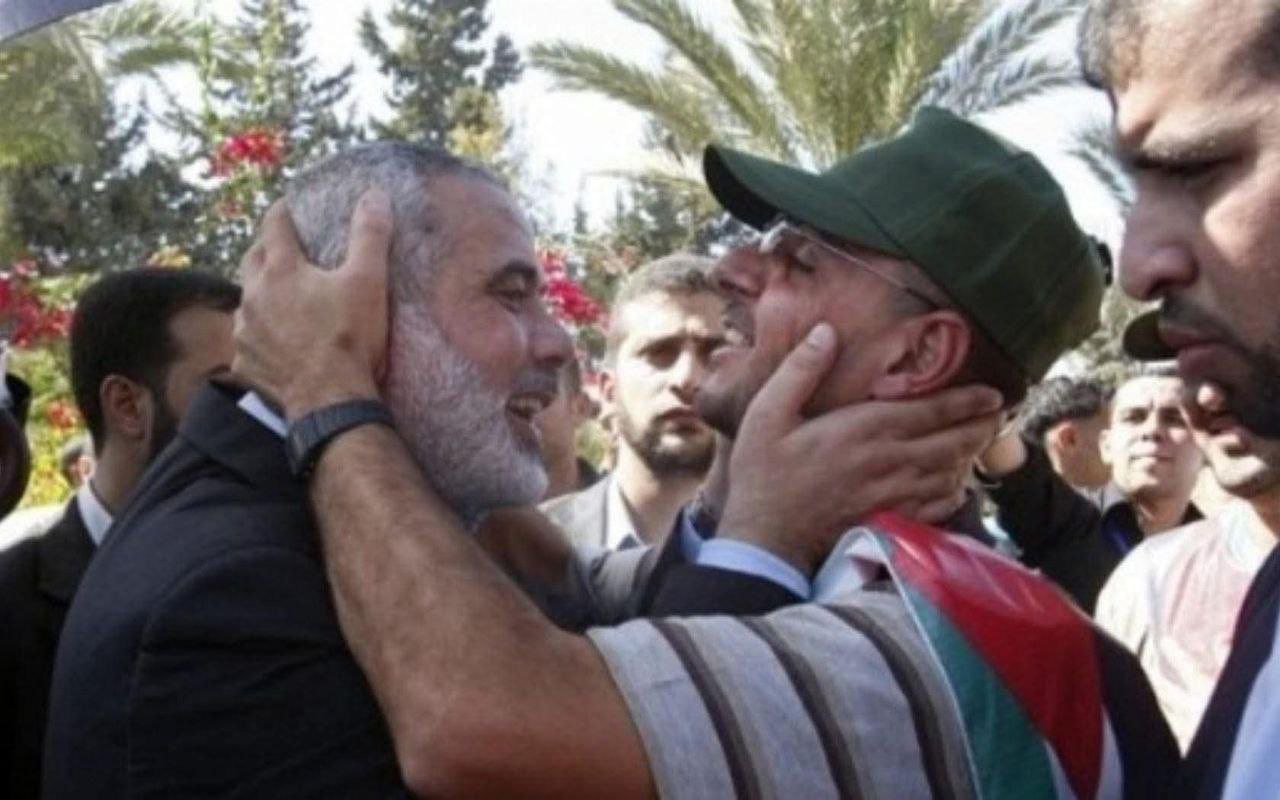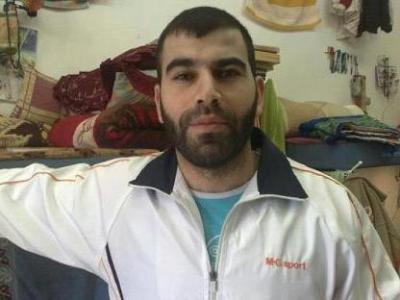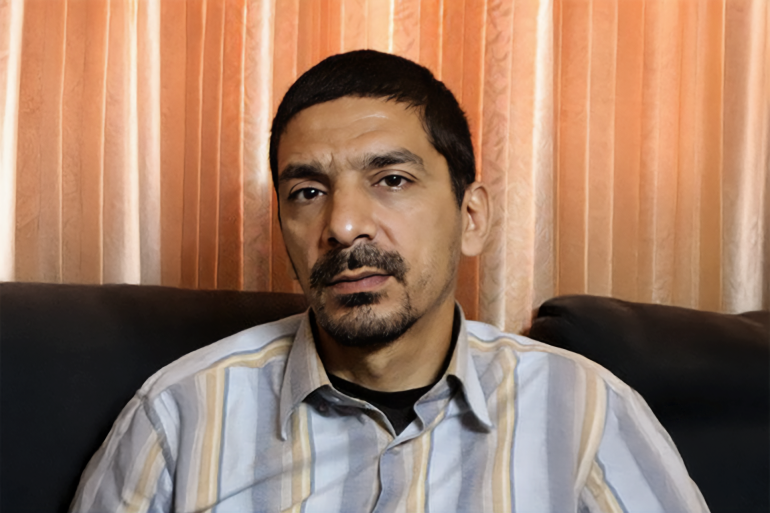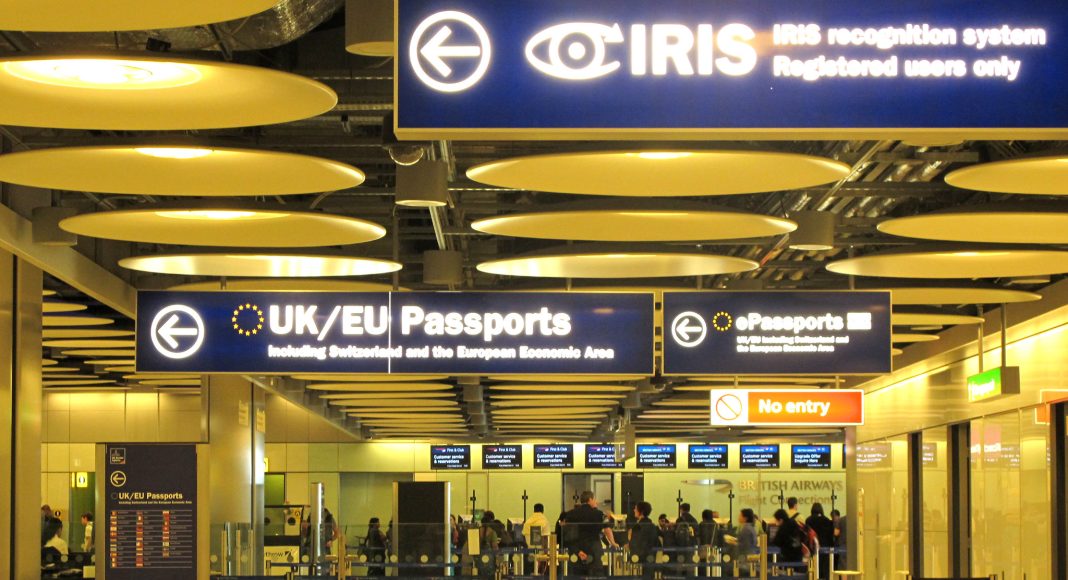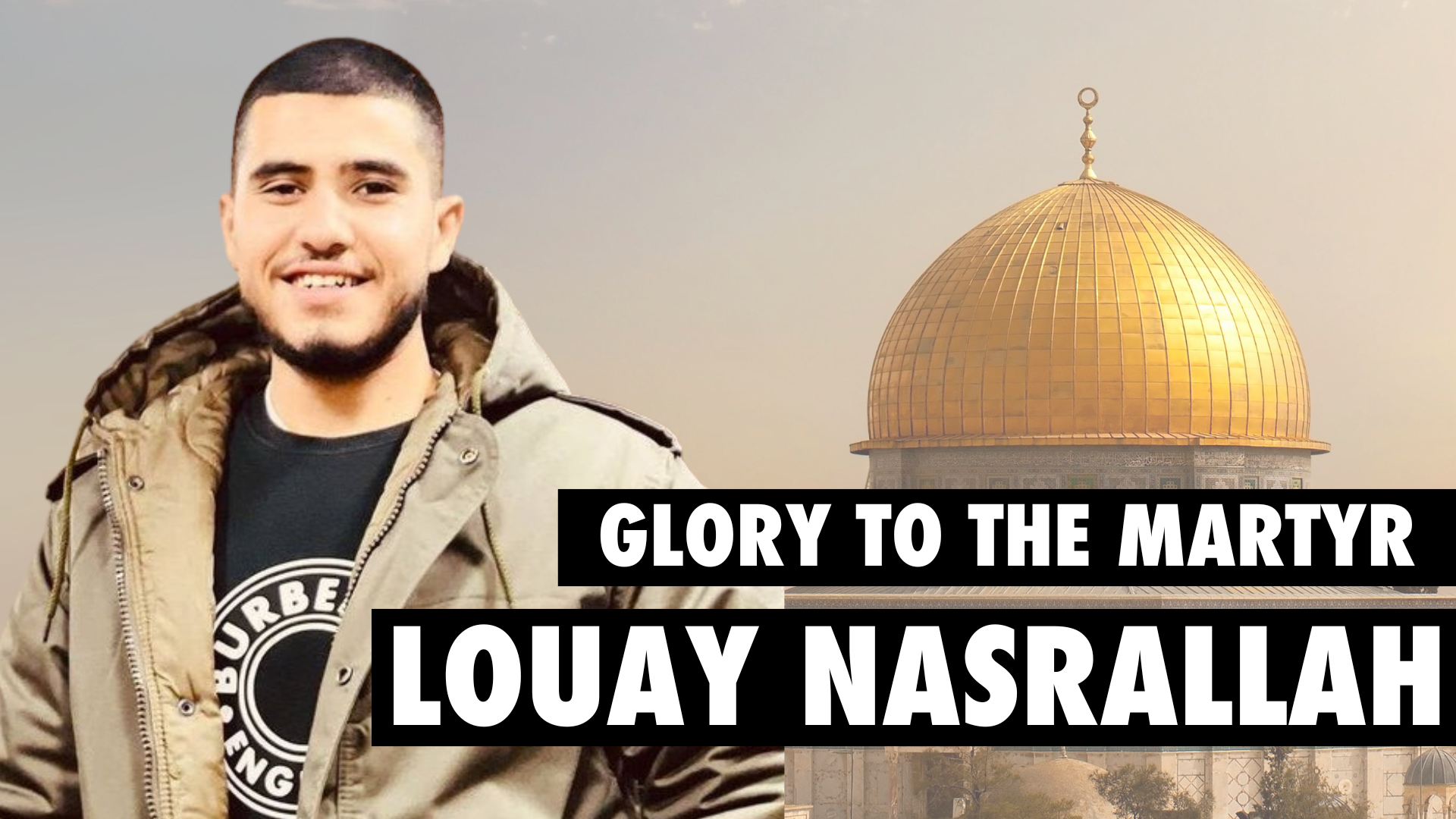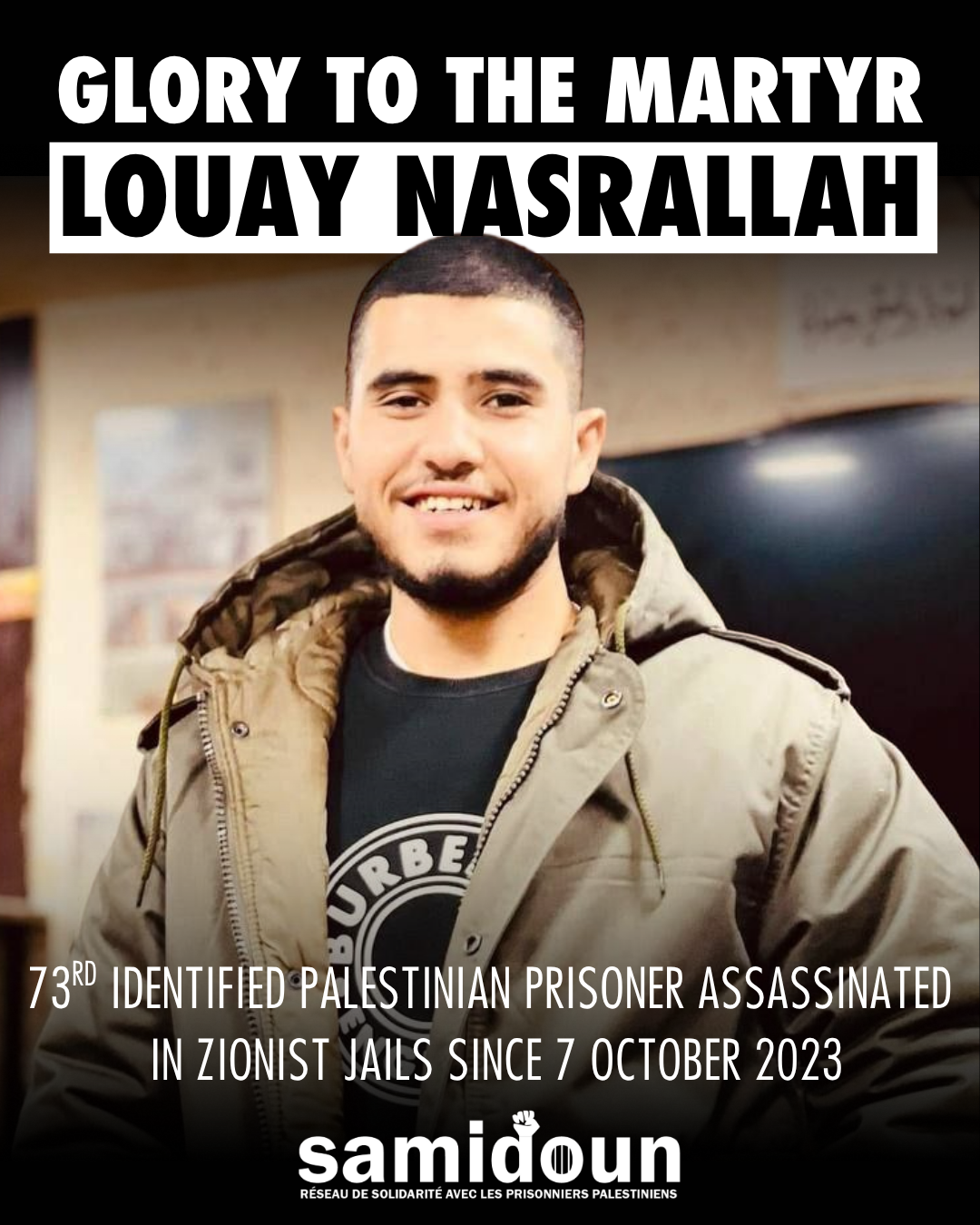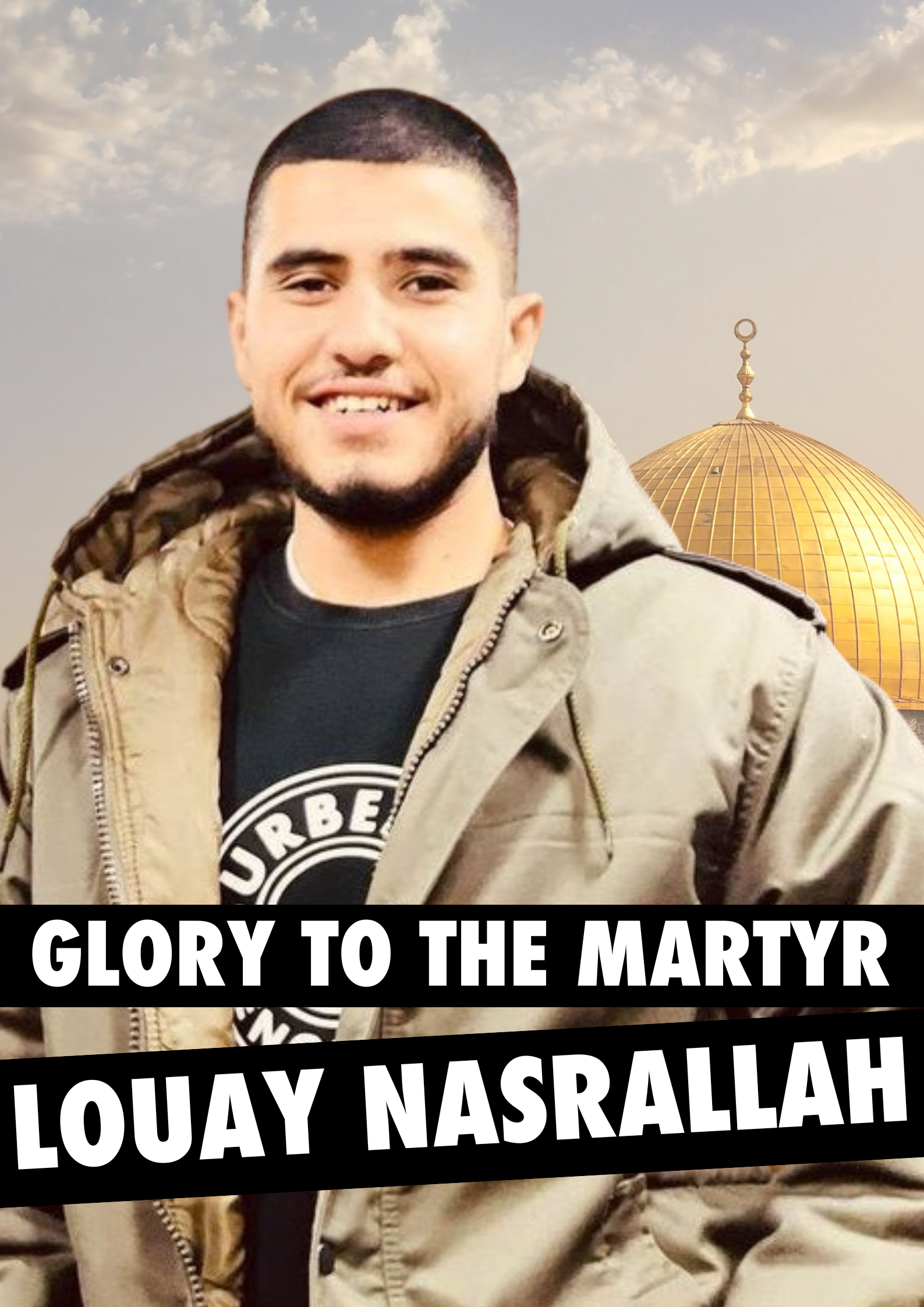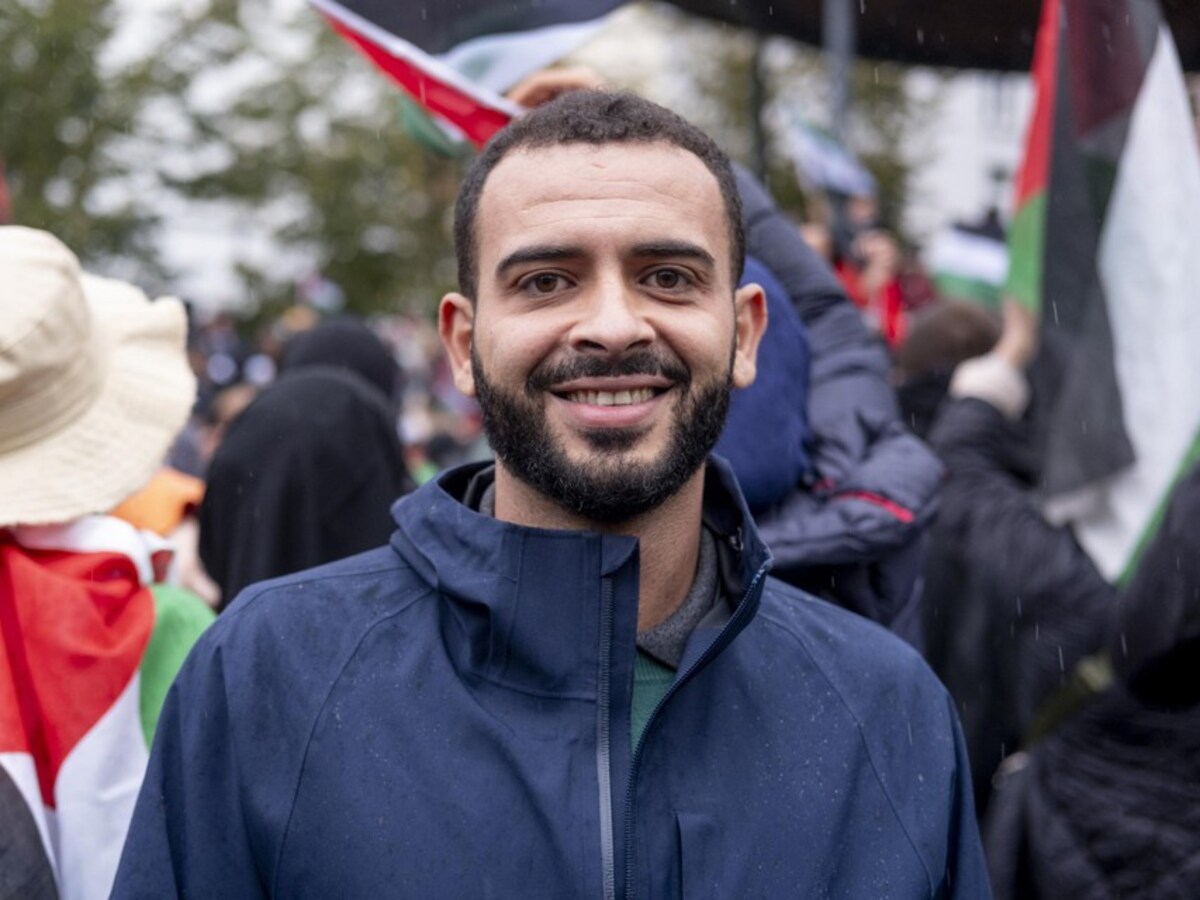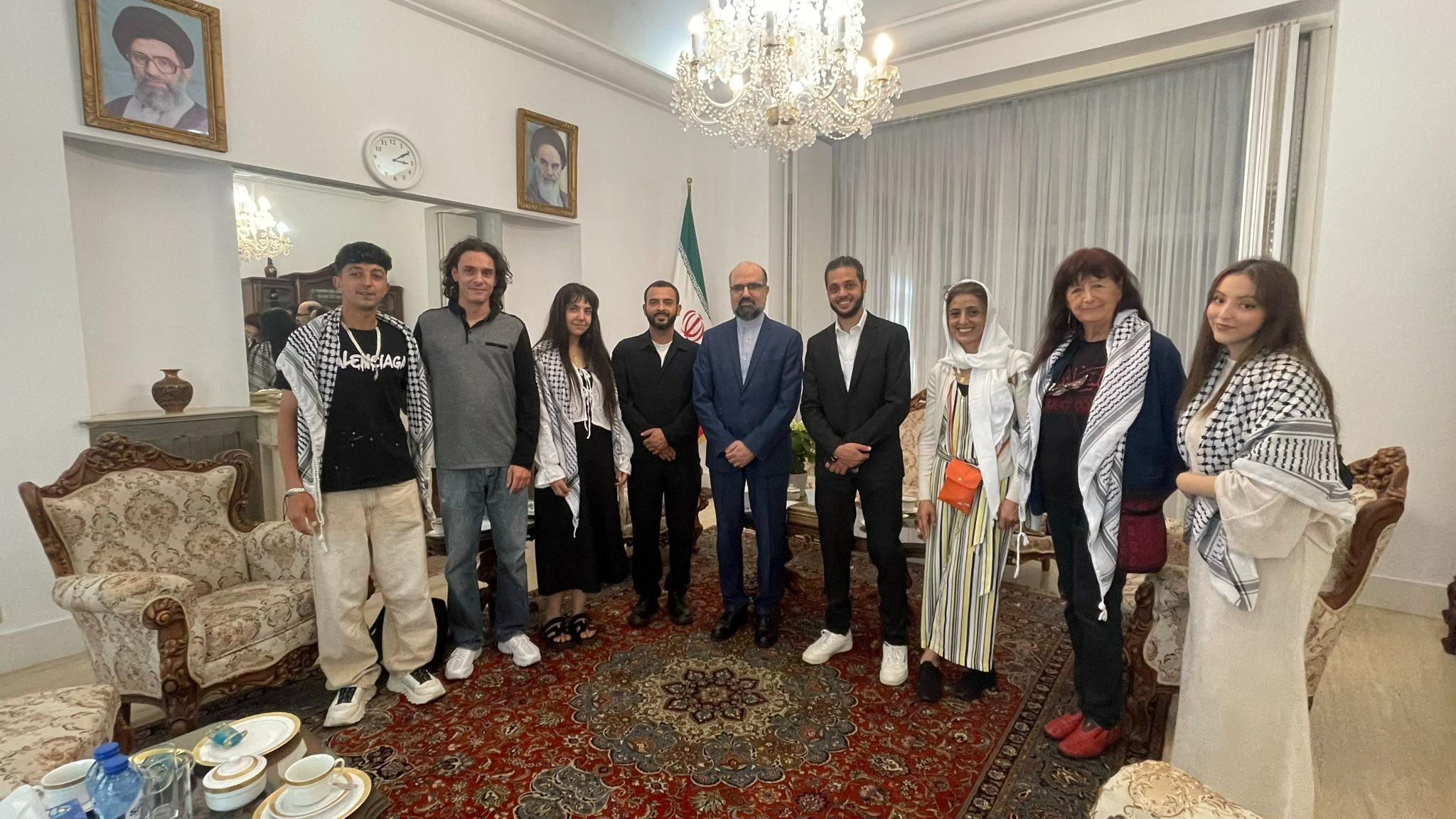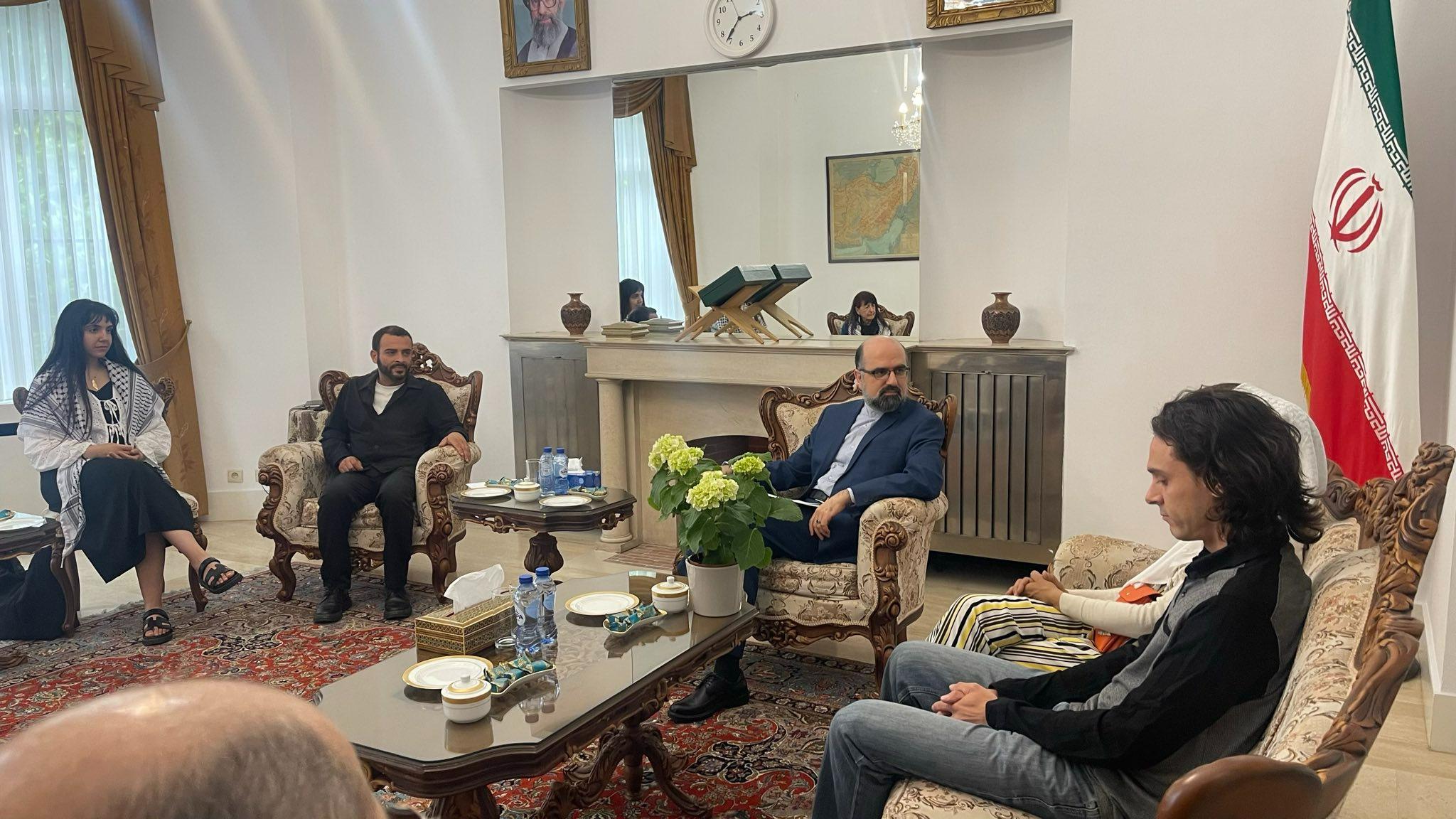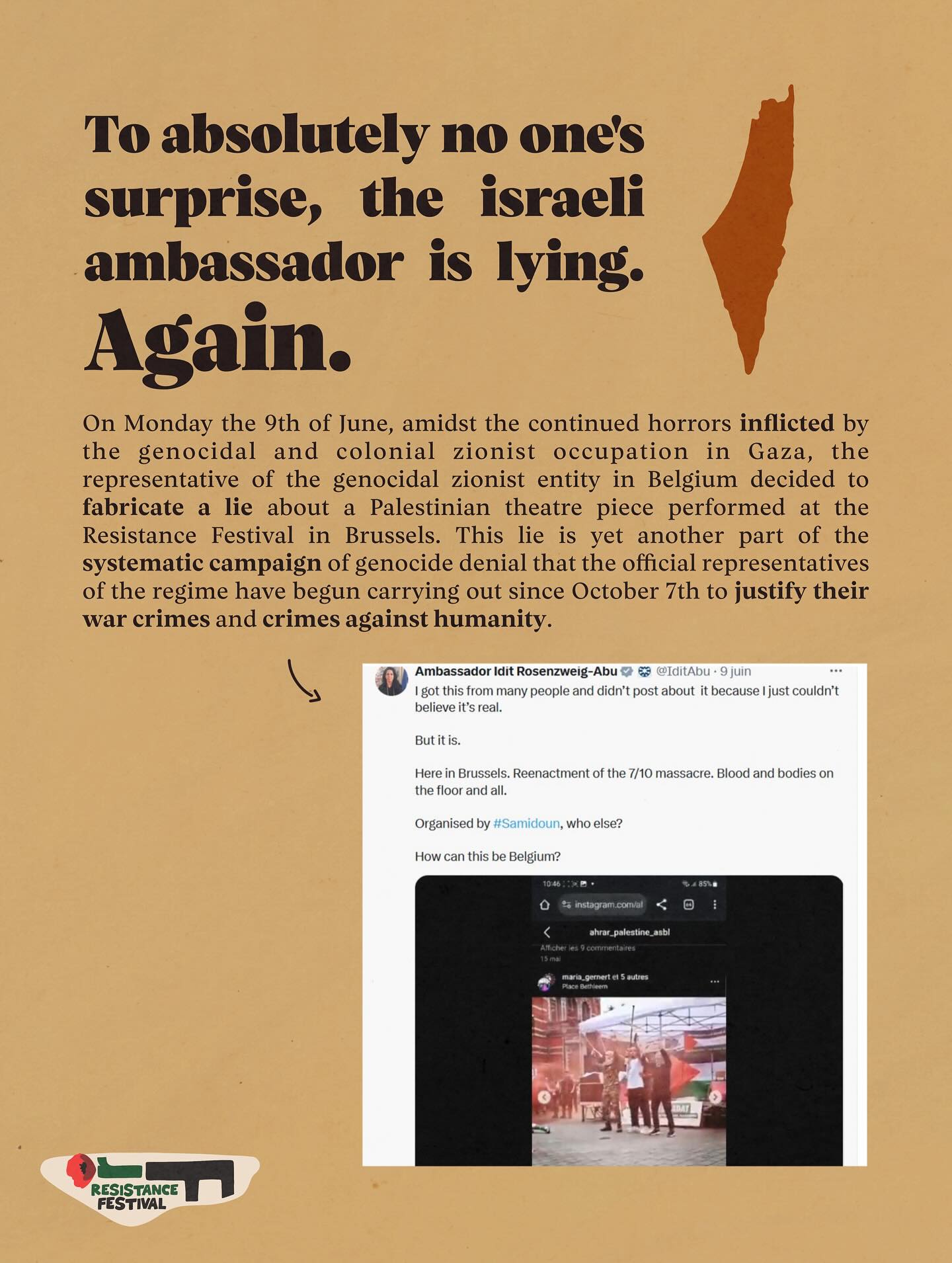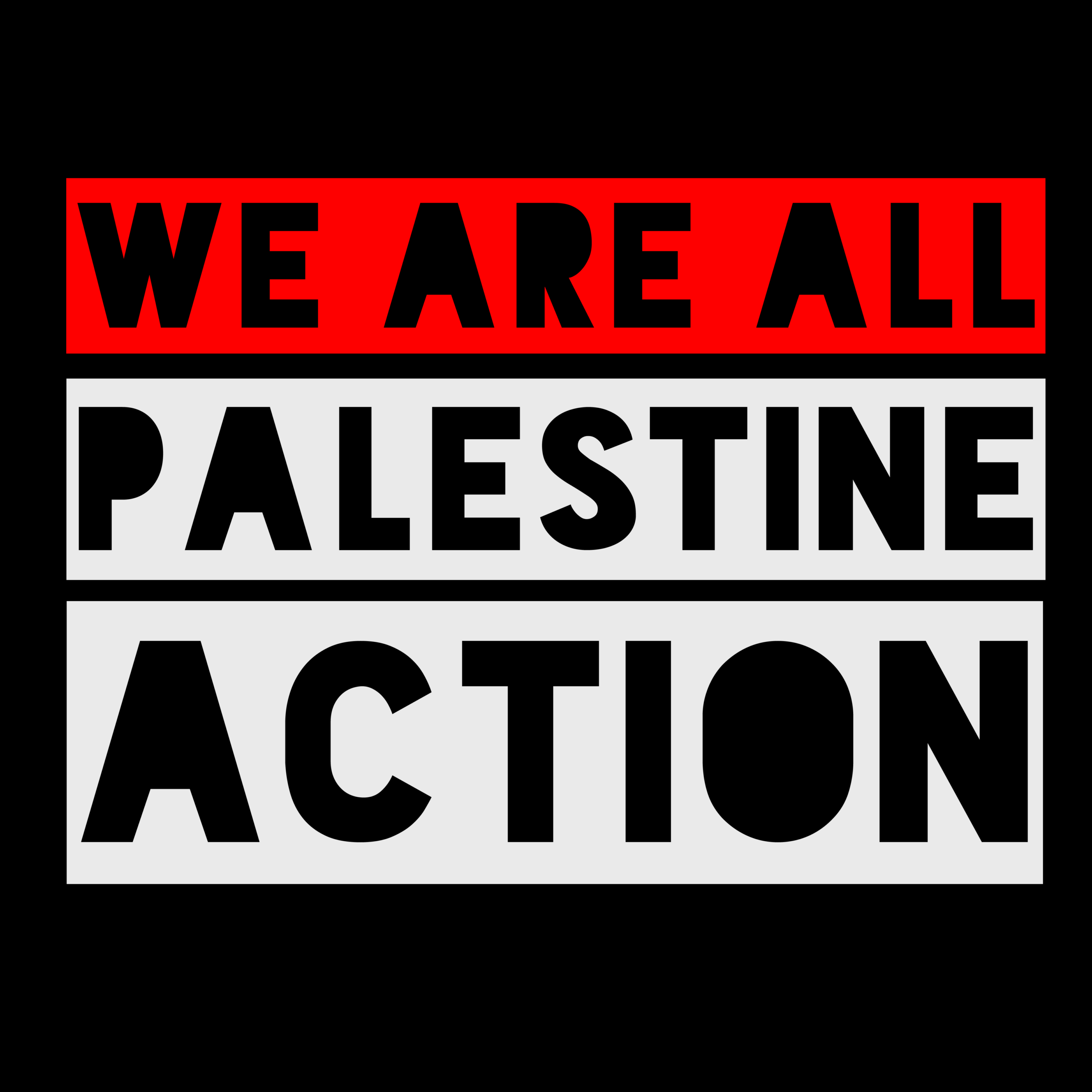
Samidoun Palestinian Prisoner Solidarity Network expresses our full solidarity with Palestine Action, threatened with proscription by the British imperialist regime because of their direct action to materially inhibit the Zionist war crimes and genocide in Palestine and throughout the region. British Home Secretary Yvette Cooper has introduced into Parliament an order to proscribe — that is, to ban, in a system similar to other imperialist powers’ “terrorist designations” — the direct action organization that has done so much to escalate the stakes of the solidarity movement and impose material costs on the imperialist and Zionist war machine. The attempt to proscribe Palestine Action as a “terrorist” organization is yet another British colonial crime against the Palestinian people and a clear indication of British imperialism’s commitment to full complicity and participation in the ongoing genocide against Palestinians in Gaza and throughout occupied Palestine.
The proscription proposal is scheduled to be voted on in the British House of Commons on Wednesday, 2 July, and in the House of Lords on Thursday, 3 July. A court challenge brought by Palestine Action will be heard on Friday, 4 July, before the proposed proscription is scheduled to go into effect, and could lead to an injunction against the order. It is clear, however, that relying on the courts is insufficient to defend Palestine Action and the Palestine liberation movement; this threat requires full-scale mobilization, protest and direct action to confront the state terror of unjust proscription and “anti-terror” laws.
Proscription is already used by the British state to criminalize Palestinian and regional resistance organizations. including Hamas, Hezbollah and Palestinian Islamic Jihad. The extent of repression connected to these designations is substantial, as even mere speech and moral support in favor of a proscribed organization may be criminalized under Britain’s Terrorism Act 2000. During the past several years, and particularly escalated amid the ongoing genocide, British police have raided activists’ homes, arrested and raided journalists, and put speakers and demonstration attendees on trial for affirming Palestinians’ right to resist and to organize to do so effectively. All of this creates a context where speaking honestly about the ongoing Zionist genocide and the forces leading the resistance to that genocide puts activists, students and even journalists at risk of severe state repression.
The excellent work of Riverway Law and CAGE in challenging the proscription of Hamas is a much-needed legal effort to advance the right to organize and defend international law — and becomes even more important amid the criminalization of grassroots solidarity resistance. One of the purposes of proscription and “terrorist” designation is an attempt to cut off legal challenges as well as popular support; while the precise mechanisms may vary between the imperialist powers, the mechanism serves the same function of both aiding and abetting genocide while also seeking to severely restrain the political and action-oriented horizons of the solidarity movement and the Palestinian and Arab community in exile and diaspora.
The attack on Palestine Action is part and parcel of British colonialism in Palestine, which continues today and did not end with the Balfour Declaration. Britain is now and has consistently been a partner in the Zionist colonization and genocide throughout Palestine, from the Balfour Declaration of 1917 seeking to provide the Zionist movement with a “Jewish national home” in occupied Palestine, to the British colonial mandate of Palestine that included the assassination and imprisonment of Palestinian leaders and strugglers in intifada after intifada, to the ongoing British arming and funding of the Zionist regime. As an imperialist power and part of the US-led imperialist camp internationally, it is a leading force in the alliance of genocide. The British colonial mandate was the first to introduce “administrative detention” — imprisonment without charge or trial — to occupied Palestine, a policy enthusiastically adopted by their Zionist colonial successors, currently used to detain nearly 4,000 of the nearly 10,000 Palestinian political prisoners held hostage in Zionist jails.
Today, the British Royal Air Force has flown at least 500 spy flights over Gaza in order to provide intelligence sharing with the Zionist genocidal regime, thereby helping to facilitate the ongoing bombings and assaults on the entire population of Gaza, as well as the assassinations targeting political leaders, government officials, health workers, journalists, aid workers, police and security officers, and other targets of the Zionist regime, often alongside their entire families. British officials have refused to answer questions about these spy flights while the British state and mainstream media has been silent and avoiding the issue entirely.
Palestine Action, through its powerful action on 20 June 2025 at the RAF Brize Norton air base, has forced these crimes into full public view. As Palestine Action noted:
Palestine Action have damaged two military planes at RAF Brize Norton, where flights leave daily for RAF Akrotiri in Cyprus, a base used for military operations in Gaza and across the Middle East. Two activists broke into the largest air force base in Britain and used electric scooters to swiftly manoeuvre towards the planes. They used repurposed fire extinguishers to spray red paint into the turbine engines of two Airbus Voyagers and caused further damage using crowbars. Red paint, symbolising Palestinian bloodshed was also sprayed across the runway and a Palestine flag was left on the scene. Both activists managed to evade security and arrest.
By putting the planes out of service, activists have interrupted Britain’s direct participation in the commission of genocide and war crimes across the Middle East.
This follows upon Palestine Action’s many successful actions against Elbit Systems, “Israel'”s largest weapons manufacturer, which makes 85% of the drones used in Zionist aerial attacks on Palestinians in Gaza, the West Bank and throughout occupied Palestine; in Lebanon; in Yemen; in Syria; and in Iran. Palestine Action has forced Elbit to sell its factories in Tamworth and Oldham and to shut down its London offices. Its direct actions have cost the war criminal company millions of British pounds in damages since 2021, acting directly to stop ongoing genocide in line with international law, and taking action when states refuse to do so. There are currently dozens of Palestine Action political prisoners, despite many actionists successfully winning their criminal cases in court by raising the necessity defense — that their actions were necessary to bring an end to Zionist war crimes in occupied Palestine.
Palestine Action and other direct action groups have not backed down in the face of the proscription attempts nor multiple arrests and imprisonments of its actionists. On 29 June, actionists taking on the name “Yvette Cooper” — for the Home Secretary seeking Palestine Action’s ban — sprayed red paint and broke windows at the offices of BNY Mellon’s investment firm, shareholders in Israel’s biggest weapons producer. In the past days, Palestine Action shut down the Bristol facility of Elbit Systems and occupied the roof of Guardtech, suppliers to Elbit Systems, in Suffolk.
In addition to the Filton 18, four actionists are currently being held under the Terrorism Act over the RAF Brice Norton direct action. The British state has been escalating the charges against actionists, especially after their repeated legal victories, and has even been shown to be coordinating its prosecutions with the Zionist embassy in Britain. Communications about state repression in Britain with the Zionist embassy also dovetailed with the British government’s raid on journalist Asa Winstanley.
As in the case of Samidoun, which was listed as a “Specially Designated Global Terrorist” in October 2024 by a Democratic administration in the United States and as a “terrorist entity” by a Liberal government in Canada, it is the Labour Party’s government that is today seeking to proscribe Palestine Action. Once again, it is clear to all that the Labour Party and the Tory Party are two wings of imperialism, with the same devastating onslaught against the people of the world, including the Palestinian people.
The nature of the proscription being brought by Cooper on behalf of Keir Starmer’s Labour government reflects the overall use of “anti-terror” laws and designations, both in Britain and throughout the imperial core. The proposed proscription lists three organizations: Palestine Action and two little-known far-right entities (the Moldovan “Maniacs Murder Cult” and the “Russian Imperial Movement”), much as terrorist lists primarily target anti-imperialist and national liberation movements yet also include fascist, reactionary and far-right organizations. This serves the goal of blunting clear opposition to such proscriptions and demands to abolish these so-called “terror lists.” While it is the proscription of Palestine Action that is the subject of large-scale press coverage, including extensive comments by Cooper herself, massive protests and widespread outrage, linking these three organizations is meant to cast opponents of the proscription as supporters of, for example, a “maniacs murder cult.”
The drive to proscribe Palestine Action is clearly not a result of any single action among its many powerful direct actions confronting genocide. Instead, it reflects the ongoing escalation of repression in the heart of the imperial core against the Palestine liberation movement, as seen also in the United States, Canada, Germany, France, the Netherlands, Belgium, Italy and Spain, among others, as well as the escalating panic of the imperialist ruling class that even the masses in their own countries widely reject genocide.
This is on vivid display at present, as the British corporate and state media and imperialist politicians denounce punk band Bobby Vylan for leading tens of thousands at Glastonbury music festival in the chant, “Death! Death! to the IDF!” and after British prosecutors were forced to drop charges against “Mo Chara” of Irish rap group Kneecap for “support for a proscribed organization” for holding up a Hezbollah flag at a concert. That prosecution was only launched after Kneecap inspired tens of thousands to cheer and chant after displaying the message, “Fuck Israel Free Palestine” at the Coachella music festival in the United States.
While tens and hundreds of thousands cheer for these artists at festivals, and millions more salute the Palestinian resistance and every missile of resistance from Yemen and Iran fired at the Zionist entity, the ruling class is turning to increasingly harsh repression in an attempt to impose state terror upon the public, as the propaganda to justify genocide has been a miserable failure in the face of the documented reality of the Zionist-imperialist mass slaughter of children, women, men and elders, destruction of hospitals, carpet-bombing of residential buildings, demolition of mosques and churches, savage torture of prisoners, overt use of starvation as a weapon of war and ongoing war crimes, crimes against humanity and genocide in Gaza and throughout occupied Palestine as well as in Lebanon, Syria, Yemen and Iran.
Palestine Action has consistently set the standard in the imperial core for imposing a material cost on weapons manufacturers and war criminals for their ongoing crimes against the Palestinian people. Indeed, actionists are doing only what is absolutely necessary to prevent and interrupt a genocide in progress. This is why they are being targeted now.
It is critical that the entire movement stands behind Palestine Action and against the criminalization of direct action and resistance — and indeed, escalates the campaign to not only stop the proscription of Palestine action, but to deproscribe Palestinian and regional resistance organizations and, indeed, to scrap the entire “terror list” and proscription system.
There is a massive popular and even official outcry against the proscription of Palestine Action, with even British civil servants appalled at the trampling of democratic, civil and political rights in order to advance the genocide. Dozens of organizations have spoken out against the proscription, while UN experts released an official call urging Britain not to use “anti-terror” laws to repress protest. Of course, this type of repression is nothing new for Britain and bears a striking parallel to the attacks on Irish republicans and the Irish liberation movement, which continues to confront proscription and political imprisonment today amid their continuing struggle.
Under the slogan, “We are all Palestine Action!” protests are being organized at Parliament, the High Court, and at British embassies and consulates internationally, while direct actions against Zionist-imperialist weapons manufacturers are taking inspiration from the example set by Palestine Action.
We urge all to continue to speak out and mobilize — including, and, indeed, especially, if the proscription is imposed by the British state. Unfortunately, experience shows that following proscriptions and designations, in many cases, large NGOs or liberal organizations have dedicated significant time and energy to isolating the targets of designation in the belief that such isolation provides them with some form of protection from further repression. This approach has even extended to the actual resistance organizations leading the struggle for liberation on the ground, with organizations in the imperial core seeking to uphold other forces, such as NGOs, as the “leadership” of the Palestinian cause.
Raising this at this moment is not a matter of alienating allies who are speaking up at this urgent moment to stop the proscription of Palestine Action; it is a warning for a critical time, because this type of reaction only encourages the imperialist powers to continue on the path of repression, as their goal is not merely to arrest or raid homes, but to constrain the horizons of the movement and impose silencing and censorship, whether externally or internally enforced. If we do not rally, even with the associated risks, behind those who are targeted, we encourage the state to escalate its attacks. This is especially true in the case of Palestine Action, which has done so much to lead in direct action materially resisting the Zionist-imperialist war machine. We must learn the lessons of history and act in clear rejection of such proscriptions, bans and designations throughout the imperial core, against Palestine Action – and against Samidoun, against Addameer, against Palestinian and Arab charity organizations, and against the resistance organizations leading the liberation struggle, including Hamas, Islamic Jihad, the PFLP, Hezbollah, AnsarAllah and other movements.
British imperialism seeks to shut down direct action for Palestine and aims to use this proscription to try to erase the example that Palestine Action sets for the confrontation of Zionism, imperialism and capitalism in the imperial core. It is all of our responsibility to multiply and globalize their work — a globalized intifada for a free Palestine, from the river to the sea.
We urge all to take the following actions recommended by Palestine Action at their website:
Watch the Film
Because of the unprecedented action the government just took against Palestine Action, the director of To Kill A War Machine has just dropped the link so that you can buy tickets across the UK or download the film.
Visit tokillawarmachine.com to watch the film, check screenings near you, or host a screening yourself!
